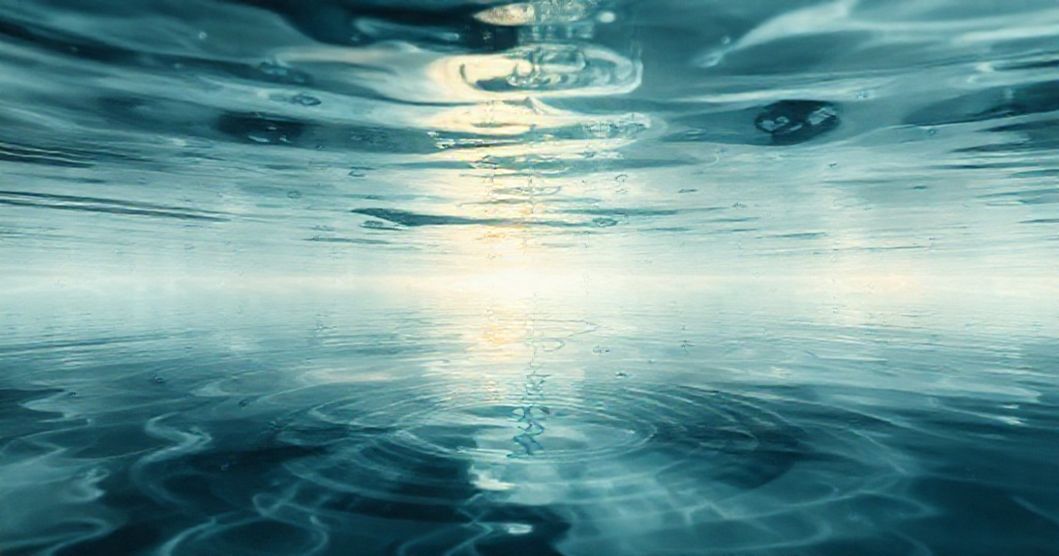Core Symbols: Water as Sigil and Mirror
Water in dreams isn’t just a random element—it’s a language your subconscious speaks through recurring motifs called 'sigils' and reflective surfaces called 'water mirrors.' A 'sigil' here refers to water’s repeating patterns: calm lakes, rushing rivers, or muddy streams that feel charged with meaning. These aren’t just images; they’re coded messages about emotional states, life transitions, or unspoken truths. Meanwhile, 'water mirrors' are literal or metaphorical reflections—ponds, rain puddles, or even the surface of a stormy sea that show your inner landscape. For example, a still lake mirroring the sky might signal emotional clarity, while a churning river mirror suggests turbulent feelings needing release.
The type of water matters deeply. Clear, still water often acts as a 'pure mirror,' reflecting your true self without distortion—a sign of emotional honesty or a moment of insight. Rushing water, by contrast, can be a 'turbulent sigil,' representing life’s chaotic transitions or repressed emotions. Muddy water, with its murky reflections, carries a different weight: it might mirror confusion, unresolved trauma, or the need to sift through emotional 'dirt' to find clarity. Each water form tells a unique story, blending symbolism with raw emotional truth.
Psychology Lens: The Science and Archetypes Behind Water Dreams
Want a More Personalized Interpretation?
Get your own AI-powered dream analysis tailored specifically to your dream
🔮Try Dream Analysis FreeFrom a psychological perspective, water in dreams taps into primal emotional processing. Jung viewed water as a key element of the collective unconscious—a repository of shared human experiences, like birth, rebirth, and emotional depth. Freud, meanwhile, saw water imagery as linked to repressed desires or fears, with flooding often representing overwhelming emotions. Modern neuroscience adds another layer: during REM sleep, the brain processes emotional memories, and water dreams may be your mind’s way of sorting through recent stress or grief.
Water mirrors, in particular, act as a 'looking glass' for the ego. When you see your reflection in water, it’s not just a visual—it’s your conscious self confronting the unconscious. In dreamwork, this often reveals what you’re avoiding: a career shift, a relationship imbalance, or a part of yourself you’ve neglected. Eastern traditions, too, echo this: in Taoism, water’s adaptability mirrors life’s flow, while in Japanese aesthetics, 'mizuumi' (water mirrors) symbolize the harmony between self and nature. Together, these perspectives show water as both a mirror of your current state and a sigil of deeper, timeless truths.
Life Triggers: When Water Dreams Take Root
Water dreams rarely appear without context—they’re often triggered by real-life emotional shifts. Major life changes, like starting a new job or ending a relationship, can spark water sigils as your subconscious processes uncertainty. For example, someone moving cities might dream of crossing a river, symbolizing the transition’s emotional weight. Overwhelm, too, is a common trigger: a stressful work period might manifest as a stormy sea mirror, reflecting inner chaos.
Modern life adds unique triggers: digital overload, where constant information feels like 'noise' on a mental mirror, or social comparison, which can turn your self-image into a muddy reflection. Even small shifts—like a new routine or a forgotten childhood memory—can surface as water sigils, urging you to pause and reflect. Notice if your water dreams follow a pattern: Do they happen during a period of decision-making? Or when you’re avoiding a difficult conversation? These patterns are your subconscious’s way of saying, 'Pay attention here.'
What To Do Next: From Dream to Self-Awareness
Start with short-term reflection: Keep a dream journal noting the water’s type (clear, muddy, rushing), the mirror’s condition (still, broken, rippling), and your emotions (calm, anxious, curious). Ask yourself: What was I doing with the water? Was I trying to cross it, drink from it, or simply observe? This detail helps decode the sigil’s message. For example, drinking from muddy water might signal a need to 'cleanse' your emotional diet, while avoiding a mirror could mean you’re resisting self-truth.
Medium-term experimentation: Create small rituals to engage with water’s symbolism. Sit by a stream or take a mindful shower, imagining the water as your mirror. Notice how the flow mirrors your thoughts—calm water for clarity, rushing for release. If you dream of muddy water, try a grounding practice like soil planting or clay modeling to 'dig up' repressed feelings gently.
Long-term integration: Let water dreams guide your daily choices. If a recurring clear water mirror appears, schedule time for self-reflection. If rushing water feels like a call to action, identify one small step toward change. Over time, these symbols become less about fear and more about collaboration with your subconscious—turning dreams into actionable self-knowledge.
FAQ
Q: What does it mean when I dream of clear water that looks like a mirror? A: Clear water mirrors often reflect emotional clarity or a moment of insight. This could signal you’re seeing a situation objectively, or that you’ve resolved a long-standing uncertainty. It’s a gentle nudge to trust your intuition.
Q: Why do I keep dreaming of muddy water mirrors? A: Muddy water suggests emotional confusion or unresolved issues. The mirror shows you’re avoiding confronting these, but the repetition asks for compassion, not judgment. Try journaling to 'sift' through what’s unclear.
Q: How do I tell if my water dream is a warning or a message of clarity? A: Notice emotion: Warnings feel urgent/fearful; clarity dreams feel illuminating/curious. Warnings might involve danger (e.g., drowning), while clarity dreams invite reflection (e.g., standing at a calm shore). Trust the feeling over the 'meaning'—your gut knows the next step.
